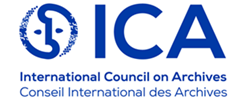
Joint Technical Symposium 2026
Tuesday 3 March - Wednesday 4 March 2026
Arc Cinema, National Film and Sound Archive of Australia, Ngunnawal, Canberra, ACT, Australia
JTS provides an opportunity for audiovisual archiving professionals from different backgrounds to come together, share new and upcoming technical advances in our field, and to go beyond the boundaries of specific formats or domains. It is an opportunity to inform and collaborate with each other, to share expertise from across the world and to contribute to the development of the next generation of audiovisual professionals.
JTS 2026's dedicated website is now available at jts2026.com.au. The organizers can be contacted at jts@conlog.com.au.
Call for papers:
The 11th JTS will bring together recent research, technical innovations and developments in the technology used to preserve audiovisual materials. JTS 2026 will be the first opportunity in six years to gather in person, and the first time the symposium will be held in Australia.
We welcome proposals based on new initiatives, research collaborations, innovations that resulted in success or failure, and above all proposals that share, connect and build knowledge in audiovisual collections across the world.
Our four key conference themes are:
- Recent research and innovation in audiovisual collections preservation and digitisation
In the six years since the last JTS gathering much has changed in the world of technology, including the introduction and rapid iteration of Artificial Intelligence and Machine Learning, accessible 3-D printing technology, cheaper and more accessible data storage and augmented reality systems. How have these rapid technological changes been utilised in audiovisual preservation and digitization? We welcome proposals which focus on recent research and innovation, which utilise new technologies or builds on the research of other fields of knowledge to implement new techniques, methodologies or hardware to aid preservation.
- Impacts of climate on audiovisual collections, their preservation and storage
A key topic of interest for JTS 2026 is research and innovation in audiovisual preservation in response to climate change, with a focus on the challenges of conservation and preservation of audiovisual materials in the Asia-Pacific region. Consideration of scientific and technical advances in balance with world-wide sustainability goals are welcomed, as are projects or products that create more sustainable ways of working. How can natural materials be used to enhance storage? How can materials common in AV collections be recycled?
- Safe audiovisual collections
As analogue audiovisual collections age some materials become hazardous to other collection items and the humans who care for them. We welcome recent research into hazards within audiovisual collections and how the risks from these hazards can be mitigated. Examples of new ways to treat collection materials with environmentally friendly, low toxicity and low complexity products are welcome. What new projects are in place to mitigate risks to people and collections from decomposition and degradation? How do we ensure safety in the archive?
- Deadline 2025
Deadline 2025, published by the NFSA in 2015, highlighted the risks to the preservation and digitisation of magnetic media. Audiovisual organisations around the world have since grappled with how to extend the lifespan of magnetic formats, keep obsolete equipment running and integrate new technology innovations into the successful capture of content from magnetic collection materials. What have we learnt? Will magnetic media become unreadable? How long will it last? Are there new ways to deal with damaged, mouldy and degraded magnetic formats? What engineering options are available to sustain obsolete playback equipment?
Submit your paper proposal HERE. Note that submissions close on 15 October 2025.

Joint Technical Symposium 2026
Tuesday 3 March - Wednesday 4 March 2026
Arc Cinema, National Film and Sound Archive of Australia, Ngunnawal, Canberra, ACT, Australia
JTS provides an opportunity for audiovisual archiving professionals from different backgrounds to come together, share new and upcoming technical advances in our field, and to go beyond the boundaries of specific formats or domains. It is an opportunity to inform and collaborate with each other, to share expertise from across the world and to contribute to the development of the next generation of audiovisual professionals.
JTS 2026's dedicated website is now available at jts2026.com.au. The organizers can be contacted at jts@conlog.com.au.
Call for papers:
The 11th JTS will bring together recent research, technical innovations and developments in the technology used to preserve audiovisual materials. JTS 2026 will be the first opportunity in six years to gather in person, and the first time the symposium will be held in Australia.
We welcome proposals based on new initiatives, research collaborations, innovations that resulted in success or failure, and above all proposals that share, connect and build knowledge in audiovisual collections across the world.
Our four key conference themes are:
- Recent research and innovation in audiovisual collections preservation and digitisation
In the six years since the last JTS gathering much has changed in the world of technology, including the introduction and rapid iteration of Artificial Intelligence and Machine Learning, accessible 3-D printing technology, cheaper and more accessible data storage and augmented reality systems. How have these rapid technological changes been utilised in audiovisual preservation and digitization? We welcome proposals which focus on recent research and innovation, which utilise new technologies or builds on the research of other fields of knowledge to implement new techniques, methodologies or hardware to aid preservation.
- Impacts of climate on audiovisual collections, their preservation and storage
A key topic of interest for JTS 2026 is research and innovation in audiovisual preservation in response to climate change, with a focus on the challenges of conservation and preservation of audiovisual materials in the Asia-Pacific region. Consideration of scientific and technical advances in balance with world-wide sustainability goals are welcomed, as are projects or products that create more sustainable ways of working. How can natural materials be used to enhance storage? How can materials common in AV collections be recycled?
- Safe audiovisual collections
As analogue audiovisual collections age some materials become hazardous to other collection items and the humans who care for them. We welcome recent research into hazards within audiovisual collections and how the risks from these hazards can be mitigated. Examples of new ways to treat collection materials with environmentally friendly, low toxicity and low complexity products are welcome. What new projects are in place to mitigate risks to people and collections from decomposition and degradation? How do we ensure safety in the archive?
- Deadline 2025
Deadline 2025, published by the NFSA in 2015, highlighted the risks to the preservation and digitisation of magnetic media. Audiovisual organisations around the world have since grappled with how to extend the lifespan of magnetic formats, keep obsolete equipment running and integrate new technology innovations into the successful capture of content from magnetic collection materials. What have we learnt? Will magnetic media become unreadable? How long will it last? Are there new ways to deal with damaged, mouldy and degraded magnetic formats? What engineering options are available to sustain obsolete playback equipment?
Submit your paper proposal HERE. Note that submissions close on 15 October 2025.












